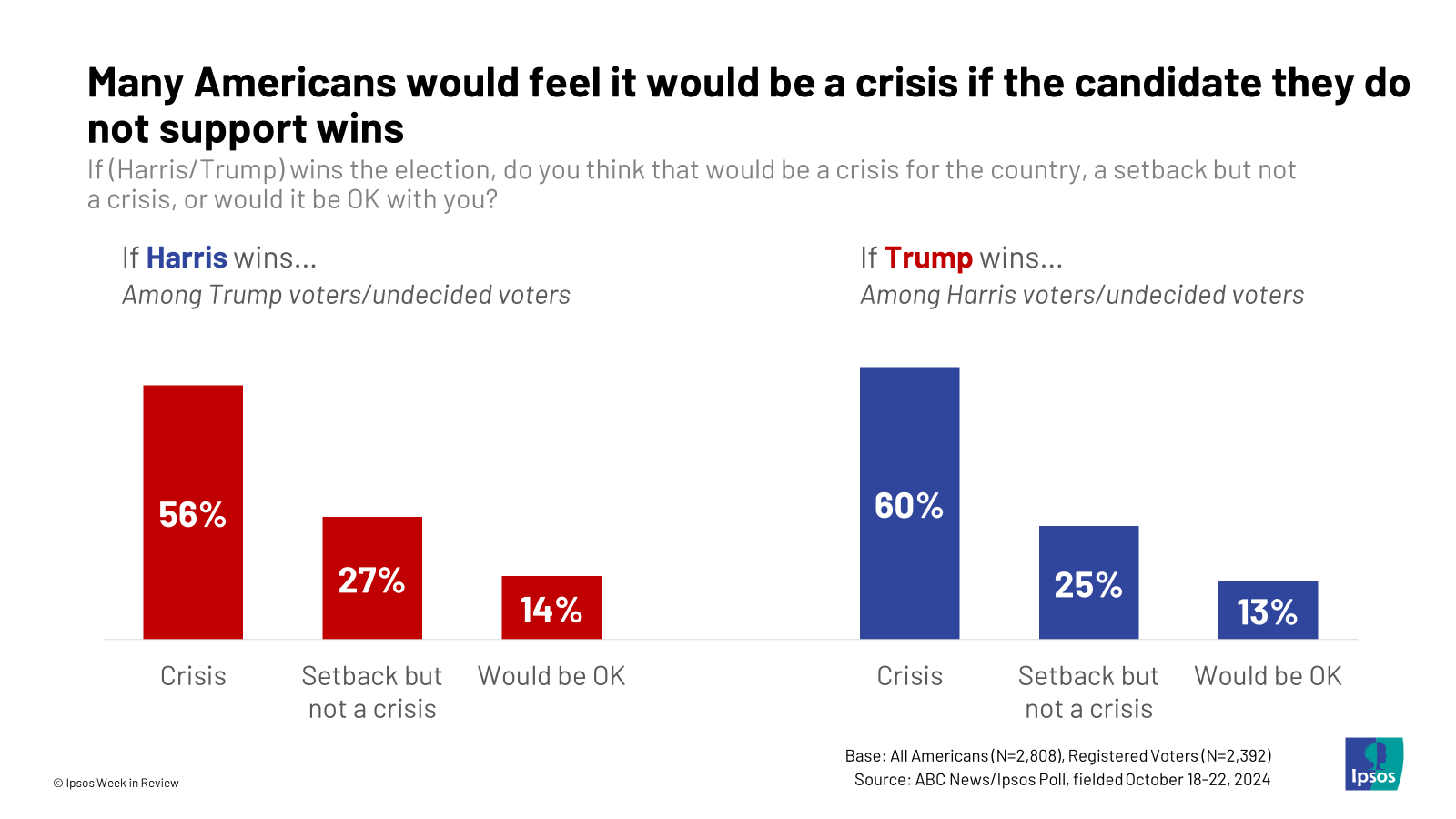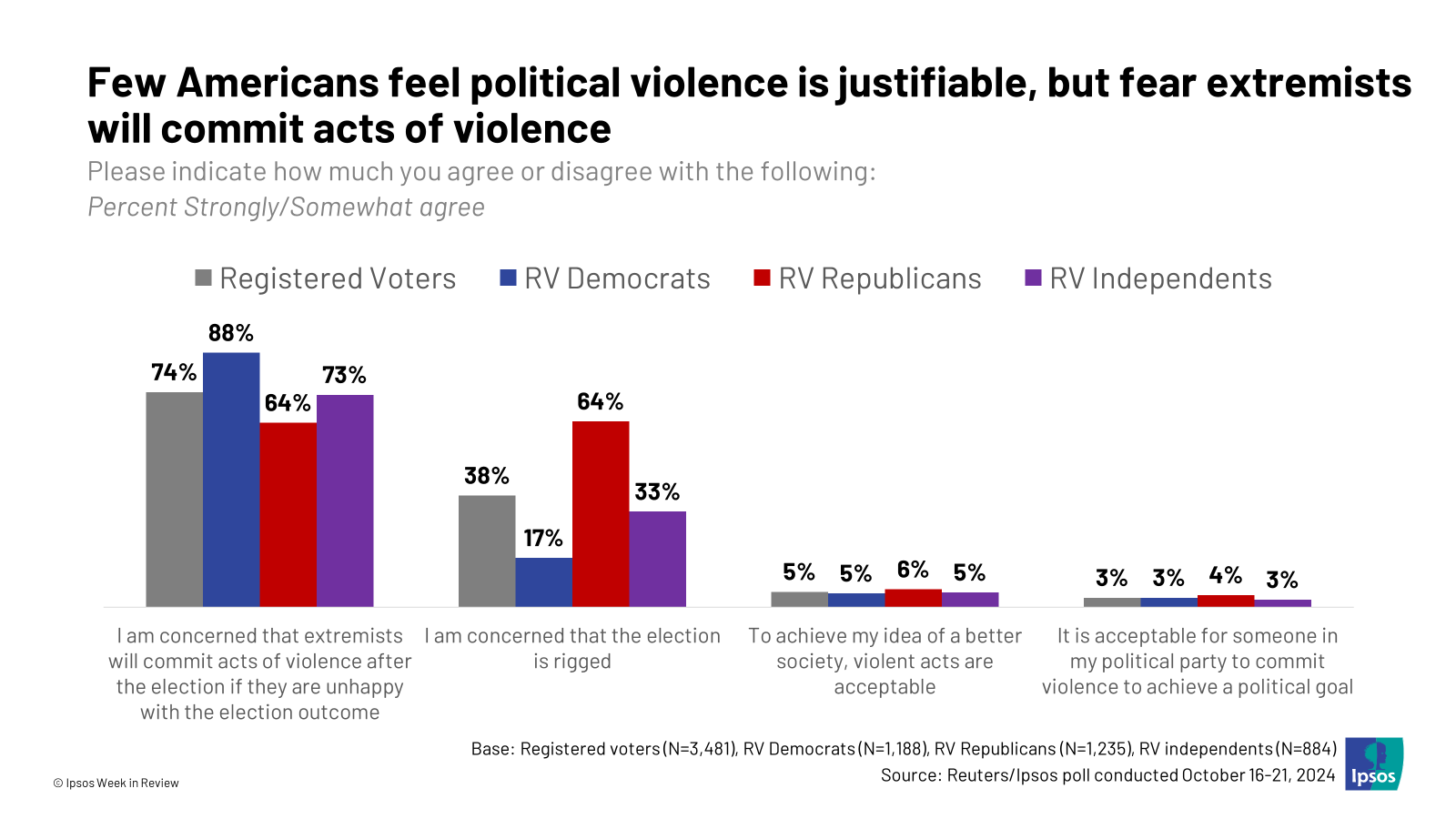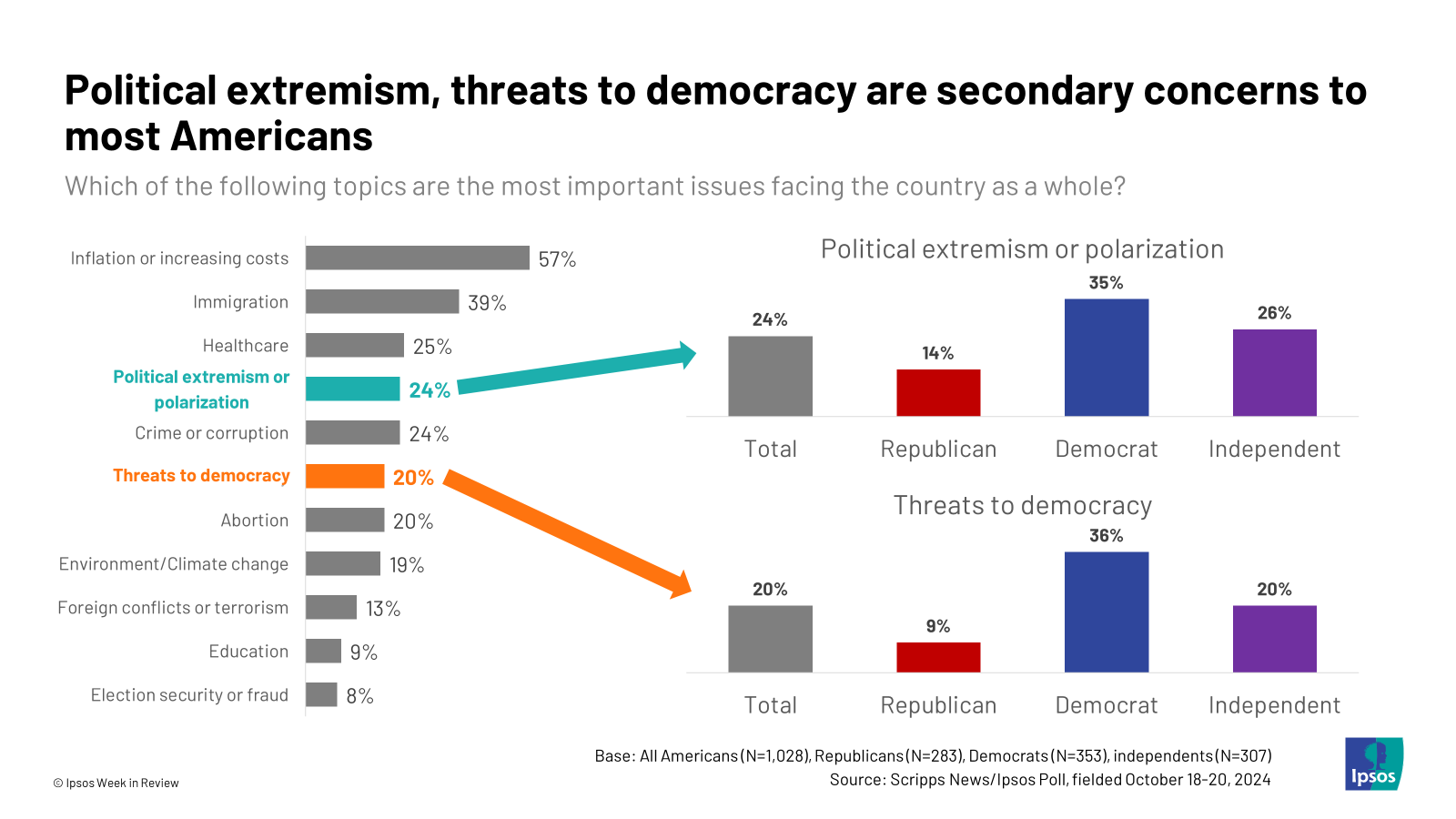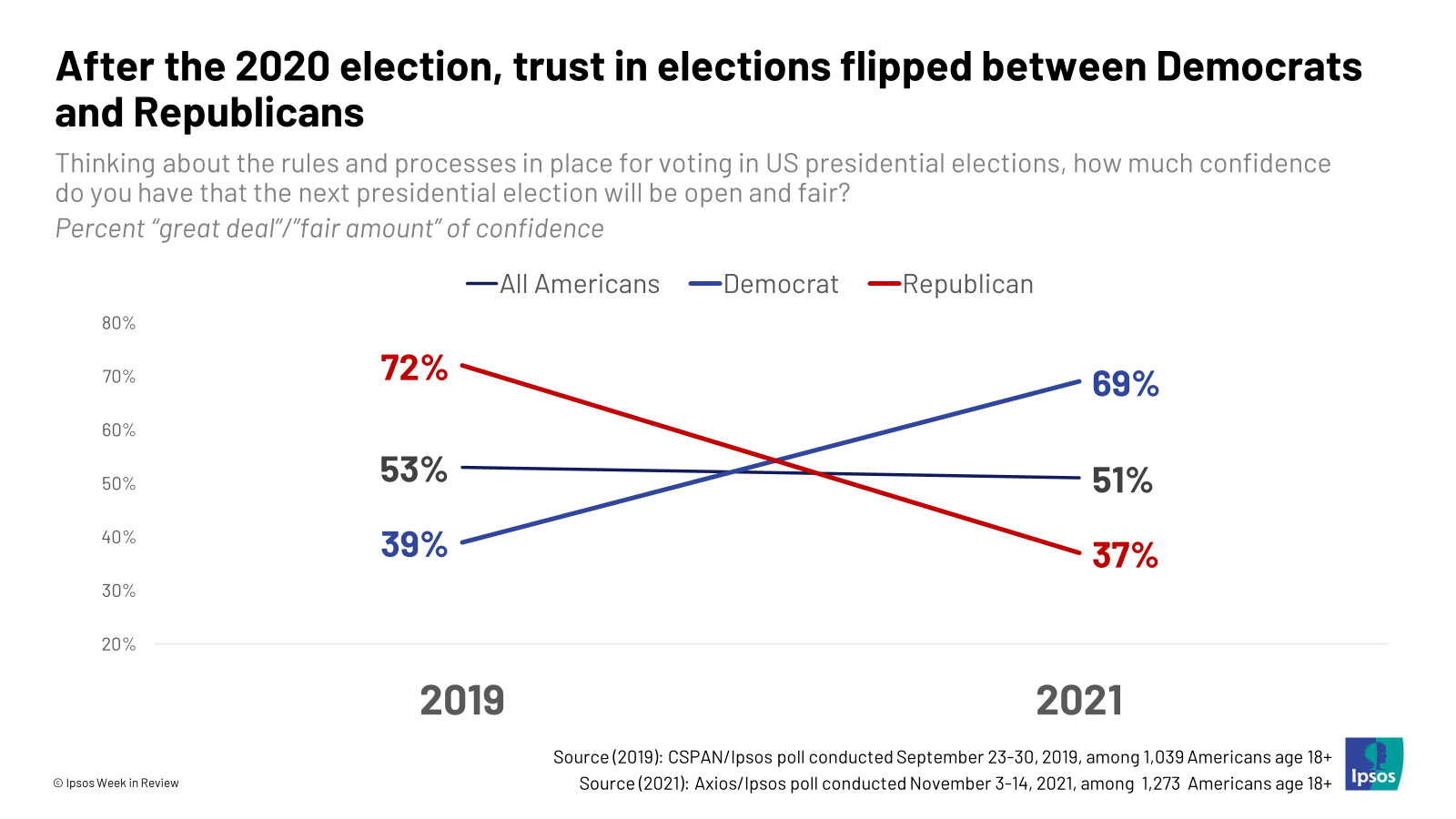The day after November 5th
November 5th is Election Day. There’s a good chance that the story won’t end there.
For starters, it’s very possible that we won’t know who won the election until days (if not weeks) after Election Day, leaving the door open for uncertainty. And with political rhetoric escalating in recent years, experts fear that more political violence could be in America’s future.
Of course, there’s no clear sign of who’s going to win the election – most polls and projections point to the election being a toss-up. But the last election cycle demonstrated that the threat of such violence is well within the realm of possibilities. Where do Americans stand when it comes to the threat of violence around the election?
Below are five charts on how Americans feel about the stakes of the election and the potential for violence after the election.
- A crisis no matter who wins. No matter who wins, a sizable chunk of Americans will feel that the election has been a crisis for the country. The tensions are high.

- Political violence is a real concern. Few Americans justify political violence for the benefit of their political party. But that number isn’t zero. All said, a majority of Americans are at least somewhat concerned that extremists could commit acts of violence after the election.

- Should the military step in? Majorities of Americans, even across party, say they would support using the U.S. military to stop any potential threat of violence around the election. This is how far things have come.

- How important is the threat of violence to voters? Not as impactful as things like the inflation or immigration. Despite most Americans’ concern with the potential for post-election violence, political extremism and threats to democracy are mainly a Democratic concern.

- Flip-flop in confidence. After a scandal-ridden 2016 election and four years of a Trump presidency, Democrats had less confidence in the fairness of elections. Things flipped after Trump lost and contested the results of the 2020 election. How much do partisans trust elections? It might depend on who wins.

With political rhetoric continuing to escalate, many Americans feel the stakes in this election are high. Though few Americans justify violence, it only takes one lone actor to be the spark of chaos.
It is unlikely that we will know who won the election on Election Day, setting the scene for potential for confusion, chaos, and political foul play. And even though there’s no clear leader in the electoral race just yet, there will certainly be a subset of Americans who feel disenfranchised if their candidate loses. Tensions are high. Watch this space.



